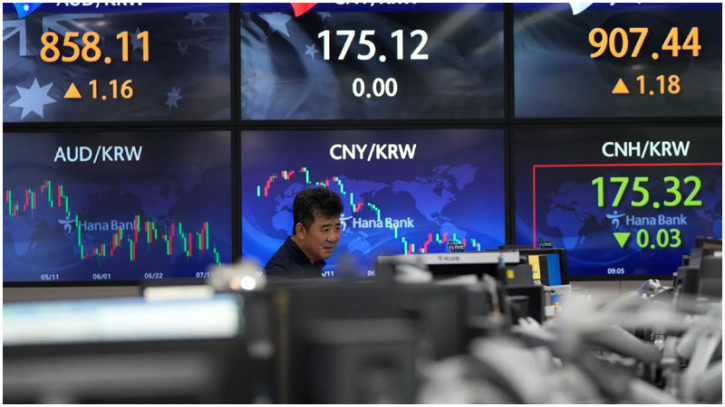Asian stocks mixed as investors downplay US-Vietnam trade pact

Asian markets were mixed on Thursday as investors offered a subdued response to the newly announced US-Vietnam trade deal, while the dollar softened ahead of key US jobs data that could influence the Federal Reserve’s interest rate decisions.
Despite Wall Street continuing its record-breaking rally—with the S&P 500 and Nasdaq closing at new highs for the third time in four days—trading sentiment in the region remained cautious. Major indices in Hong Kong, Shanghai, Tokyo, Sydney, and Wellington declined, while markets in Singapore, Seoul, Taipei, Manila, and Jakarta posted modest gains.
The trade deal between the United States and Vietnam, unveiled by former President Donald Trump on his Truth Social platform, was met with skepticism by investors. Trump described the pact as a “Great Deal of Cooperation,” following talks with Vietnamese Communist Party leader To Lam.
Under the agreement, Vietnamese exports to the US will face a 20% tariff, while goods merely passing through Vietnam to evade higher trade barriers—known as transshipping—will be subject to a steeper 40% tariff. This represents a reduction from the 46% percent tariffs imposed during the April 2 tariff blitz, but still poses significant cost pressures on Vietnamese exporters.
As a result, Hanoi’s stock market opened lower, reflecting concerns that the deal may not offer sufficient relief. While the agreement suggests a willingness by Washington to strike bilateral trade deals, the fact that only three countries have finalized agreements ahead of Trump’s July 9 deadline raises fears of escalating trade tensions.
Failure to meet this deadline could trigger what Trump has termed “Liberation Day” tariffs, heightening the risk of fresh market volatility.
South Korean President Lee Jae Myung acknowledged that his government was making every effort to finalize an agreement with the US, but admitted that reaching a resolution before the deadline remained uncertain. The broader market also remained cautious due to growing concerns over US fiscal policy.
Trump’s proposed “Big, Beautiful Bill,” which aims to slash taxes and cut funding to programs like Medicaid, has alarmed bond markets. Independent analysts estimate the bill would add roughly \$3 trillion to the national debt, sparking worries about long-term economic sustainability. These concerns helped drive US Treasury yields higher on Thursday.
Meanwhile, the US dollar continued to lose ground after ADP data revealed an unexpected contraction in private-sector jobs for the first time since March 2023, signaling potential weakness in the labor market. The focus now shifts to the upcoming non-farm payrolls report, which is closely watched by the Federal Reserve when setting interest rates. Economists are forecasting a gain of 110,000 jobs and a slight increase in the unemployment rate to 4.3%.
Analysts suggest that unless the report shows a significant deterioration, Fed policymakers may hold off on immediate action and wait for more clarity on inflation trends. Nevertheless, growing speculation around a possible rate cut in July—and potentially two more before the end of the year—continues to shape market expectations.
As investors digest the implications of the US-Vietnam deal, shifting trade dynamics, and evolving monetary and fiscal policies, global markets remain delicately poised ahead of critical economic data and political deadlines.
.png)




